Journey with us as we delve into Katsaridaphobia, the fear of cockroaches, and unravel its mysteries and coping mechanisms.
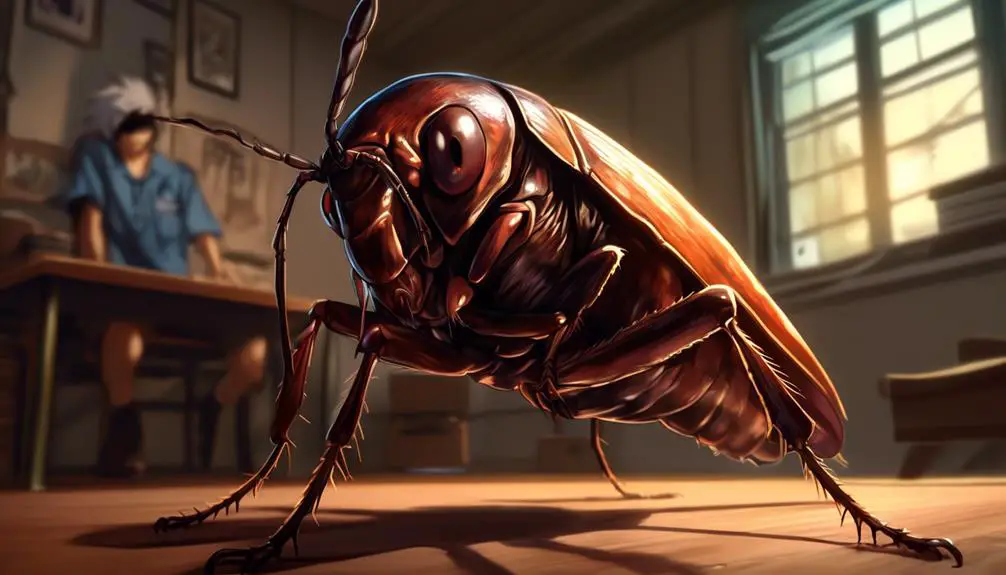
What Is the Fear of Cockroaches Phobia Called?
Just as you were about to flip that light switch in your kitchen, there it was – a cockroach. You may have felt a chill run down your spine or a sudden impulse to jump on the nearest chair. If this sounds all too familiar, you might have a fear of cockroaches, more specifically known as Katsaridaphobia.
But what exactly is this fear, how is it different from a simple distaste for these critters, and more importantly, how can you manage it?
Let's explore this phobia together, and perhaps you'll find the answers you're seeking.
Key Takeaways
- Katsaridaphobia is a genuine condition that can greatly impact daily life.
- The fear of cockroaches can trigger severe anxiety reactions, including physical symptoms such as rapid heartbeat, sweating, and nausea.
- Personal encounters, societal perceptions, cultural influences, and traumatic experiences contribute to the development and prevalence of Katsaridaphobia.
- Treatment options for Katsaridaphobia include cognitive-behavioral therapy, exposure therapy, medication, and self-help techniques.
Understanding Katsaridaphobia
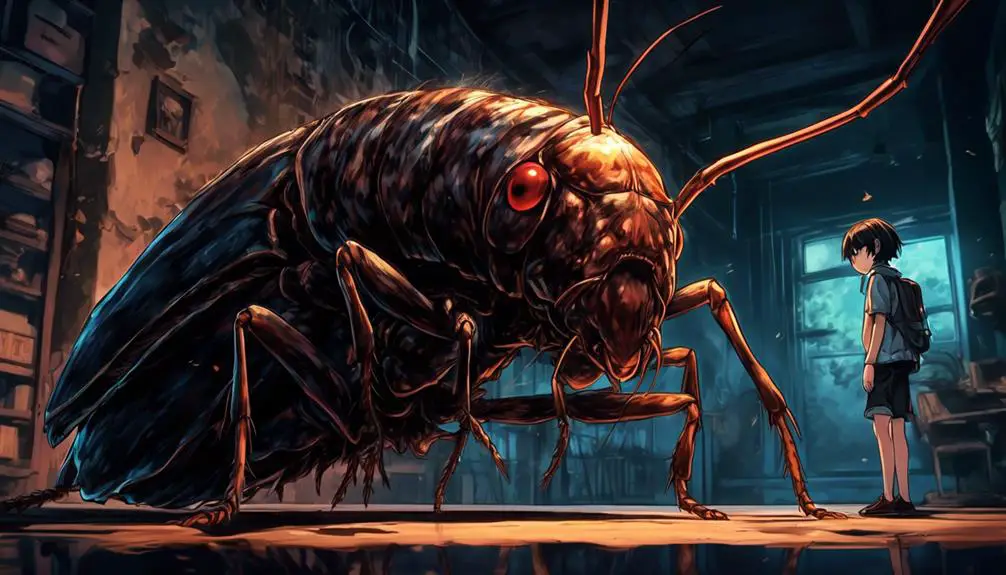
While it may seem unusual to some, Katsaridaphobia, or the intense fear of cockroaches, is a genuine condition that can greatly impact your daily life. It's not just the common dislike for these insects, but a deep, paralyzing fear that can trigger severe anxiety reactions.
Your reactions to cockroaches, if you're suffering from Katsaridaphobia, are likely to be quite extreme. You might experience an accelerated heartbeat, excessive sweating, nausea, or even fainting at the sight or even the mere thought of a cockroach. This fear can be so overpowering that it hampers your everyday life, making simple tasks like cooking or cleaning a torment, as you're always on edge about encountering a cockroach.
Phobia triggers can differ from person to person. For some, a previous traumatic encounter with a cockroach might've sparked this fear. For others, it could be the way cockroaches are often portrayed in media as dirty and disease-carrying creatures. Sometimes, it's not even the cockroach itself that frightens you, but the fear of what it represents – disease, dirt, and decay.
Understanding Katsaridaphobia is the first step towards addressing it. It's crucial to recognize the severity of this phobia, and not trivialize it as just a 'dislike' for cockroaches. Just like any other phobia, Katsaridaphobia is a serious anxiety disorder that requires professional help. If you or someone you know is struggling with this fear, it's essential to seek professional guidance. Remember, there's no shame in confronting your fears and seeking help.
Origins of the Cockroach Phobia
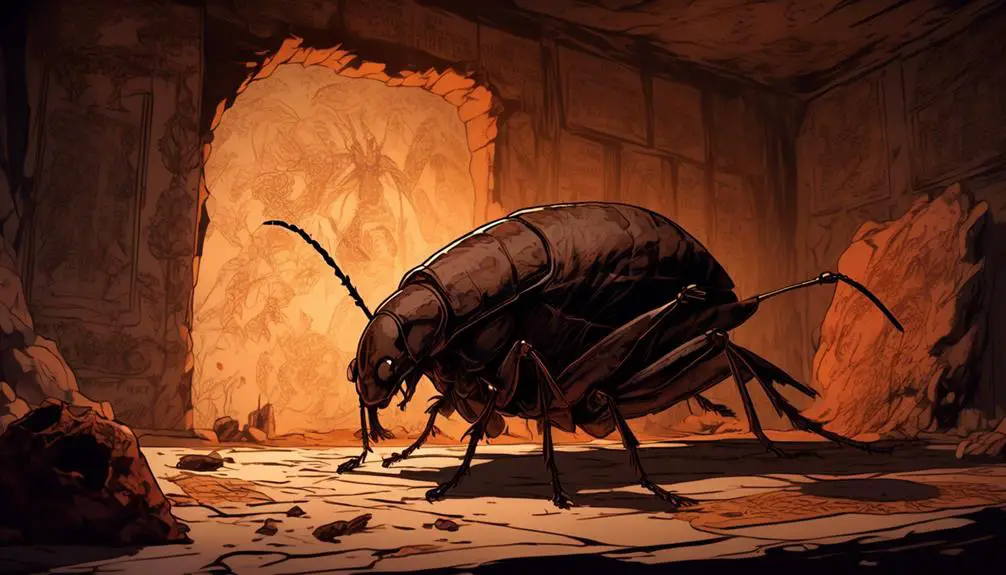
Now that we understand the profound impact of Katsaridaphobia, let's explore where this intense fear of cockroaches originates.
The origin of this phobia is multifaceted, influenced by a combination of individual experiences, societal perceptions, and cultural influences on phobia.
Firstly, personal encounters play a significant role. You might've had a traumatic experience with a cockroach in your childhood, which instilled an ongoing fear. Alternatively, you may be particularly sensitive to the unpredictable movements and general appearance of roaches. This individual susceptibility significantly contributes to the cockroach phobia prevalence.
Secondly, societal perception of cockroaches undoubtedly fuels this fear. They're often portrayed as dirty, disease-carrying creatures in media and day-to-day conversations, which can exaggerate your fear and disgust.
Lastly, cultural influences on phobia can't be overlooked. In some cultures, cockroaches are associated with filth and degradation, intensifying the fear. While in others, they're merely seen as a nuisance, resulting in a less widespread fear.
While Katsaridaphobia might seem irrational to some, it's essential to remember that phobias are real, intense, and deeply personal. They're not merely dislikes, but powerful fears that can interfere with daily life.
Why Is Katsaridaphobia so Common?
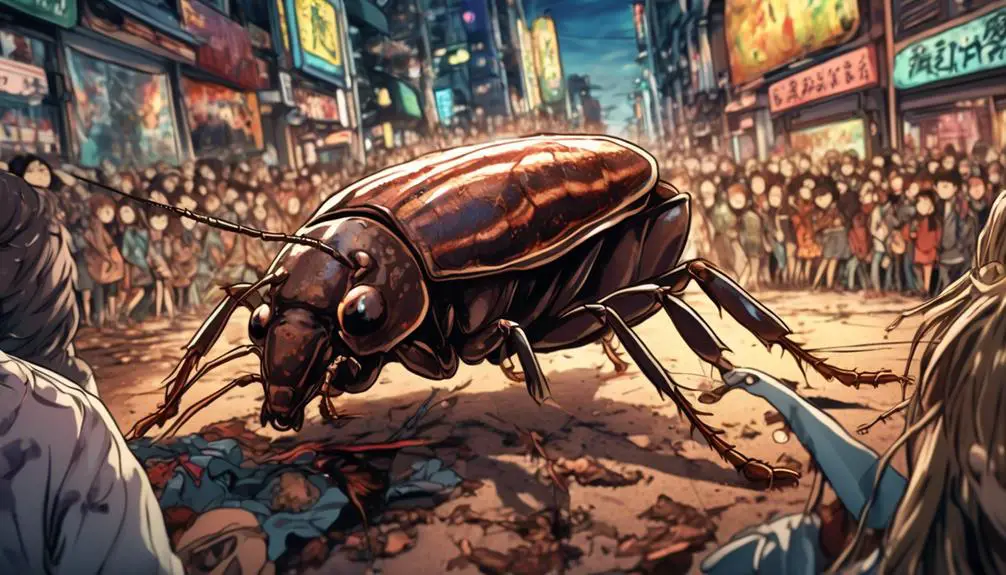
Delving into the prevalence of Katsaridaphobia, you might wonder why this specific fear of cockroaches is so widespread among individuals across various cultures and societies. Several factors contribute to this phobia, with cultural influences on Katsaridaphobia playing a significant role.
In many societies, cockroaches are associated with filth, disease, and decay, intensifying the fear and disgust response towards them. They're often portrayed negatively in media and literature, further fueling this fear. This cultural conditioning makes Katsaridaphobia a common phenomenon across the globe.
Additionally, there's an evolutionary basis for fear that can't be overlooked when discussing Katsaridaphobia. Our ancestors, much like other animals, developed fear as a survival mechanism. Fearing potentially harmful creatures such as cockroaches, which were often carriers of disease, was a means of staying safe. This innate fear has been passed down through generations, explaining why even today, despite living in sanitary conditions, many people still have an intense fear of cockroaches.
Moreover, the unpredictable, fast movements of cockroaches can trigger an alarm response in our brains, causing panic and fear. It's not merely the sight of a cockroach, but the sudden, startling movement that often provokes anxiety.
Symptoms of Katsaridaphobia
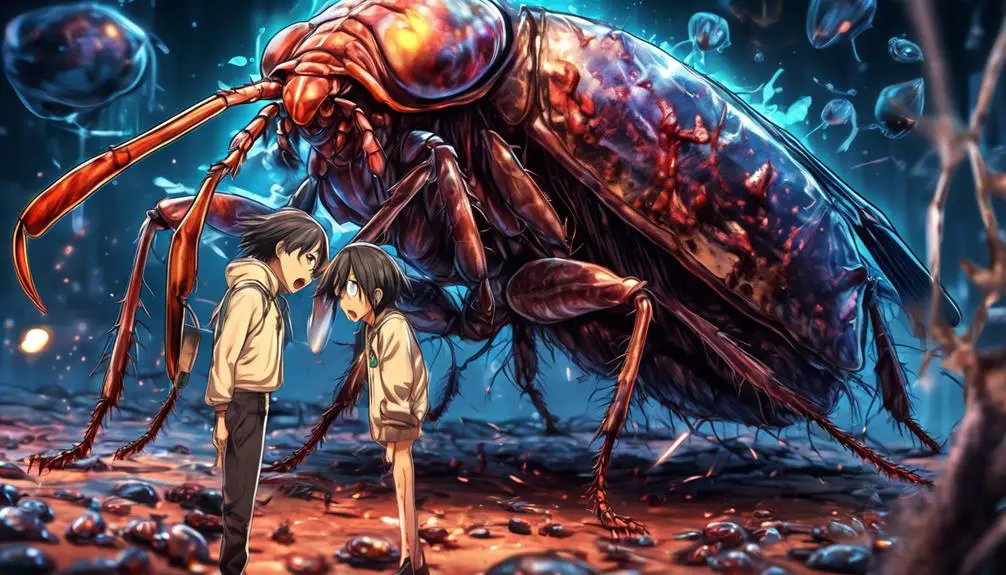
Recognizing the symptoms of Katsaridaphobia can be the first step in addressing this fear, and it's important to understand that these manifestations can vary greatly from person to person.
Phobia triggers can be subtle or obvious. You may feel an overwhelming sense of dread or terror when you think about or encounter a cockroach. This can manifest physically as a rapid heartbeat, sweating, trembling, or even feeling dizzy or nauseous. Mentally, you may experience feelings of panic, anxiety, or a strong desire to escape the situation.
It's not uncommon to go to great lengths to avoid cockroaches, even to the point of impacting your daily life. You might refuse to go to certain places for fear of encountering a cockroach, or constantly check your surroundings to ensure there are no cockroaches present. You might also have persistent thoughts or nightmares about cockroaches.
Anxiety management can play a key role in dealing with Katsaridaphobia. Cognitive-behavioral therapy, for instance, can help you change your thought patterns and reactions to cockroaches. Exposure therapy might gradually desensitize you to your fear. Medication can also be an option for managing severe anxiety symptoms.
Dealing With Katsaridaphobia
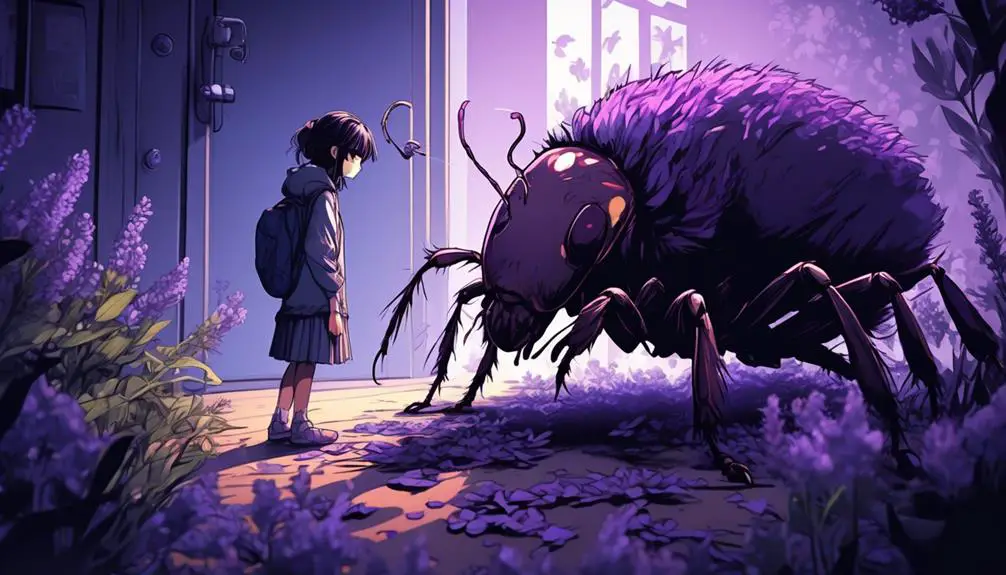
Facing Katsaridaphobia may seem daunting, but there are effective strategies and treatments that can help mitigate your fear of cockroaches. Understanding the root cause of your fear is the first step towards conquering it. Keep in mind that every person's experience with Katsaridaphobia is unique and varies in intensity and triggers.
Katsaridaphobia in children can be especially challenging to manage. Children often lack the cognitive skills to rationalize their fears, making it harder for them to overcome their phobia. Therapies like cognitive-behavioral therapy (CBT) can be beneficial in such cases, as they help children understand and change their thought patterns that lead to fear and anxiety.
Cultural influences on Katsaridaphobia shouldn't be overlooked either. In some cultures, cockroaches are associated with filth and disease, which can amplify the fear. Understanding these cultural nuances can help in devising effective strategies for dealing with Katsaridaphobia.
Exposure therapy, another widely used treatment for phobias, involves gradual and repeated exposure to the object of fear, in this case, cockroaches. Over time, this technique can reduce the fear response. It's crucial, however, to seek professional guidance while undergoing such therapy to ensure it's safe and effective.
Self-help techniques such as deep breathing and mindfulness can also be useful in managing your fear. These relaxation techniques can help you stay calm when facing a cockroach.
Professional Help for Katsaridaphobia

Navigating the maze of Katsaridaphobia can be tough, but seeking professional help can provide you with the tools and guidance needed to effectively manage your fear. You're not alone in this and there are specialized professionals who understand your phobia and can provide effective strategies to help you cope.
Therapy effectiveness is a key factor in treating Katsaridaphobia. Cognitive-Behavioral Therapy (CBT), for instance, is a highly effective treatment. It helps by changing your thought patterns related to cockroaches, leading to a decrease in fear and anxiety. In a controlled and safe environment, you can gradually face your fear, learning how to react differently and manage your anxiety effectively.
Exposure therapy, a type of CBT, might also be suggested by your therapist. This involves gradual and repeated exposure to the source of your fear. Over time, this exposure can lessen your fear response, helping to reduce your phobia.
Phobia medication can also be beneficial in managing Katsaridaphobia. While not a cure, medication can help control the panic and anxiety associated with your phobia. It's often used in conjunction with therapy, enhancing the effectiveness of treatment.
It's important to understand that the journey to overcoming your phobia can be challenging. There might be setbacks, but remember, that's part of the process. Each step you take, regardless of its size, is progress. With the right professional guidance, you can navigate through your fear and start living a life less dominated by Katsaridaphobia.
It's never too late to seek help and begin your journey towards overcoming your fear.
Conclusion
In conclusion, if you're dealing with Katsaridaphobia, know that you're not alone. This fear of cockroaches is quite common and can cause significant discomfort.
Recognizing the symptoms is the first step to overcoming it. Seek professional help if you find this fear impacting your daily life. Remember, it's completely okay to ask for assistance.
After all, managing your fears is a critical part of maintaining your overall mental health.



Sign up